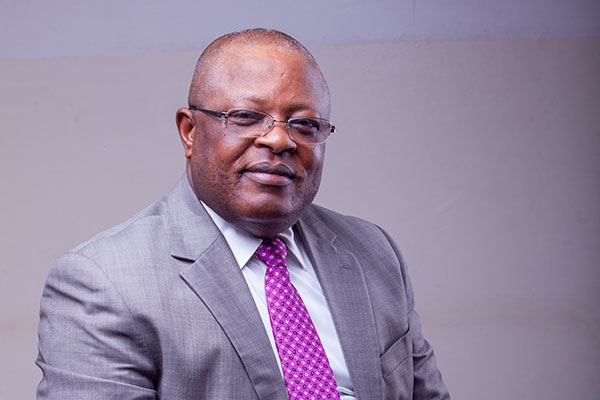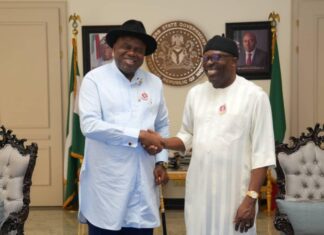By Emeka Alex Duru
A major take-away from the meeting of South East Governors Forum (SEGF), last Sunday, October 29, was the approval of South-East Economic Summit from November 11 to 13, 2017.
Chairman of the Forum and Ebonyi State governor, Dave Umahi, who made the announcement, said that the Summit would hold with the support and partnership of Department for International Development (DFID), a United Kingdom government department responsible for administering overseas aid.
He added that the meeting approved the visit of Brenthurst Foundation, South Africa to the South-East on an economic mission, from November 6 to 11, 2017.
The Foundation, an initiative that came up in August 2003, was originally designed to instigate a debate in South Africa around policy strategies to achieve higher rates of economic expansion.
Currently, the Foundation has a wider African focus and aims to find ways to draw the investment needed for “continental regeneration and prosperity”, according to Wikipedia, the free encyclopedia.
The governors discussed on other issues, affecting the south east region. But the economic summit in partnership with DFID and visit of Brenthurst Foundation, remain the high point of their meeting.
There can hardly be a better time for the summit. Coming at a time the region is practically at the back waters of Nigeria’s policy and infrastructure consideration, the meeting if properly harnessed, could afford the zone an opportunity for a fresh start or consolidation in areas it has relative advantage.
Since the inauguration of the Muhammadu Buhari administration in 2015, there has been the obvious tendency at exclusion of the south east in its appointments and policy initiatives.
Curiously, aside occasional dismissal of the allegation by officials of the government, statistics of projects and actions of the administration, portray the south east as not having its fair share in the scheme of things.
Incidentally, the Buhari administration is not the only one that had maintained this grossly vindictive policy at the people.
In fact, since the end of the civil war in 1970, successive administrations have put up actions that daily remind indigenes and residents of the south east that they were a conquered lot, despite claims to the contrary.
Even with the proclamation of “no victor, no vanquished” and the consequent enunciation of the principles of reconciliation, reconstruction and rehabilitation at the end of the war by the Yakubu Gowon regime in 1970, not much has really been put in practice to convince the people that they are part of the federation, ever since.
Just last week, for instance, the federal government rehashed the worn promise of compensating officers and men of the Nigeria Police that fought on the side of Biafra during the war – 47 years after. The same story of official complacency resonates in virtually all aspects of national life involving those on the federal side and ex-Biafrans.
But perhaps, where the gross injustice has manifested the most is the litany of failed federal projects in the east. Aside new ones not being considered in the zone, all federal roads and other infrastructural facilities in the south east are completely dilapidated.
This culture of neglect, predates the Buhari administration. But, it is not doing anything to reverse the trend. If anything, the President, has not shown signs of attending to the people. He rather carries on as one having deep seated animosity at the people for voting the rival Peoples Democratic Party (PDP) in 2015 general elections.
The result has been the suggestion on the leaders of the south east to seek a path of development that is not entirely at the expense of the federal government. It is in this respect that the south east economic summit in partnership with DFID, comes at the right time.
On the surface, at least, DFID, is not political. It rather claims interest in ensuring sustainable development and elimination of poverty within countries.
South east, thus, clearly falls into its schedules. With virtually dilapidated infrastructure, low federally allocated revenue, land-locked topography and shrinking land mass, combining to work against expansion of production base, the area requires external assistance in ideas and finance, to actualise its abundant human capital endowment.
What is thus, needed, is a careful articulation and delivery of the needs of the region by its leaders to the august body.
In a similar gathering involving the Summit and Security Summit Group that comprised top business, military, political, religious and community leaders from the region, in December, last year, former Minister of Power, Professor Barth Nnaji, who spoke at the forum, stated that the meeting was aimed at addressing real issues affecting the peace and development of the south-east, proffering practical solutions and initiating a definitive course of action with pragmatic delineation of roles towards fast-paced economic and secure advancement of the region.
Though not much was heard on the activities of the facilitators of the meeting subsequently, the agenda it proposed to address, still remain germane in the November parley with DFID.
How far the issues are articulated and presented by south east leaders, may go a long way in shaping World opinion on the condition of the region.
Two key considerations have however been giving analysts serious concern on the handling and management of the meeting by governors. One is the timing. Coming at a time when preparations for 2019 elections seem to be dominating the consideration of office holders, there is the fear of the leaders, turning the forum to a platform for political interest.
In this regard, some may see the gathering as avenue to market their 2019 ambition or do so for those they are backing. In that case, speaking with one voice on issues concerning the region, may be difficult.
Some may even back out of the conference, if they suspect that their attendance may offend their principals or benefactors, in one way or another.
But perhaps, of more concern is the possible resurgence of the culture of self-flagellation among those in attendance. For instance, at the opening of the summit in 2011, former Senate President, Kenechukwu Nnamani, was reported to have made discouraging remark on the Igbo being the “architects” of their misfortune.
Obi Nwakanma, who took exception to the remark, in his column, The Orbit, in Vanguard Newspapers, of September 4, 2011, described it as among the, “worn and dated sentiments often calculated to shock, blame the victim or, in fact, do worse”.
Such unguarded comments are known to have worked against cohesion and singleness of purpose among the Igbo in their outings. They also pose negative portrayal to activities of the people, hence should be avoided if the economic summit with DFID partnership would be a success.















